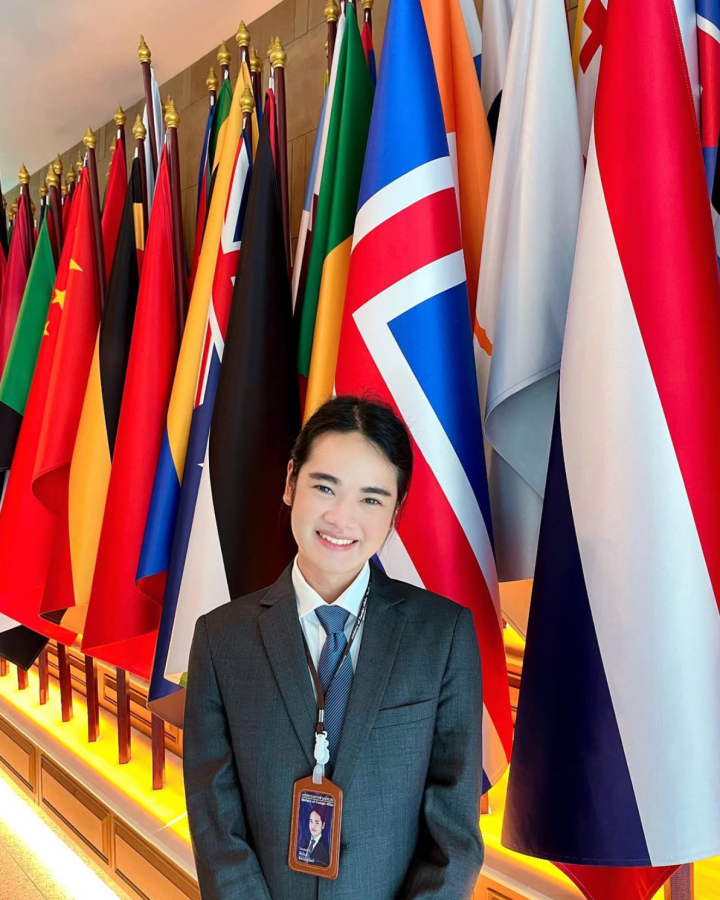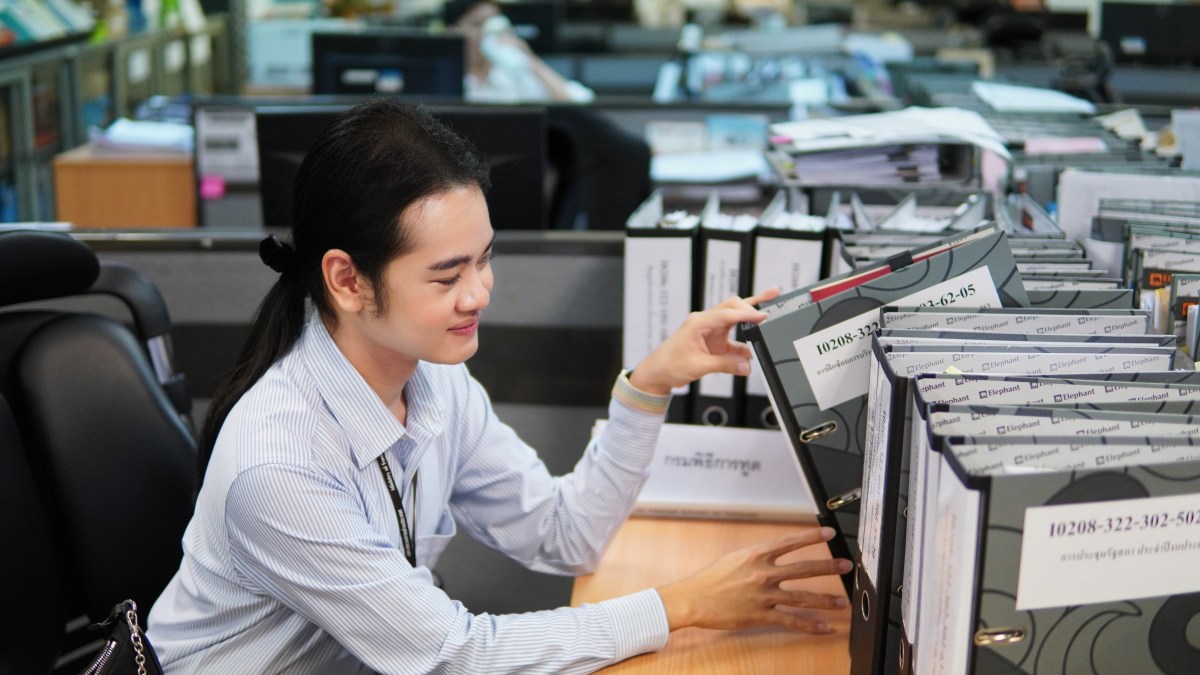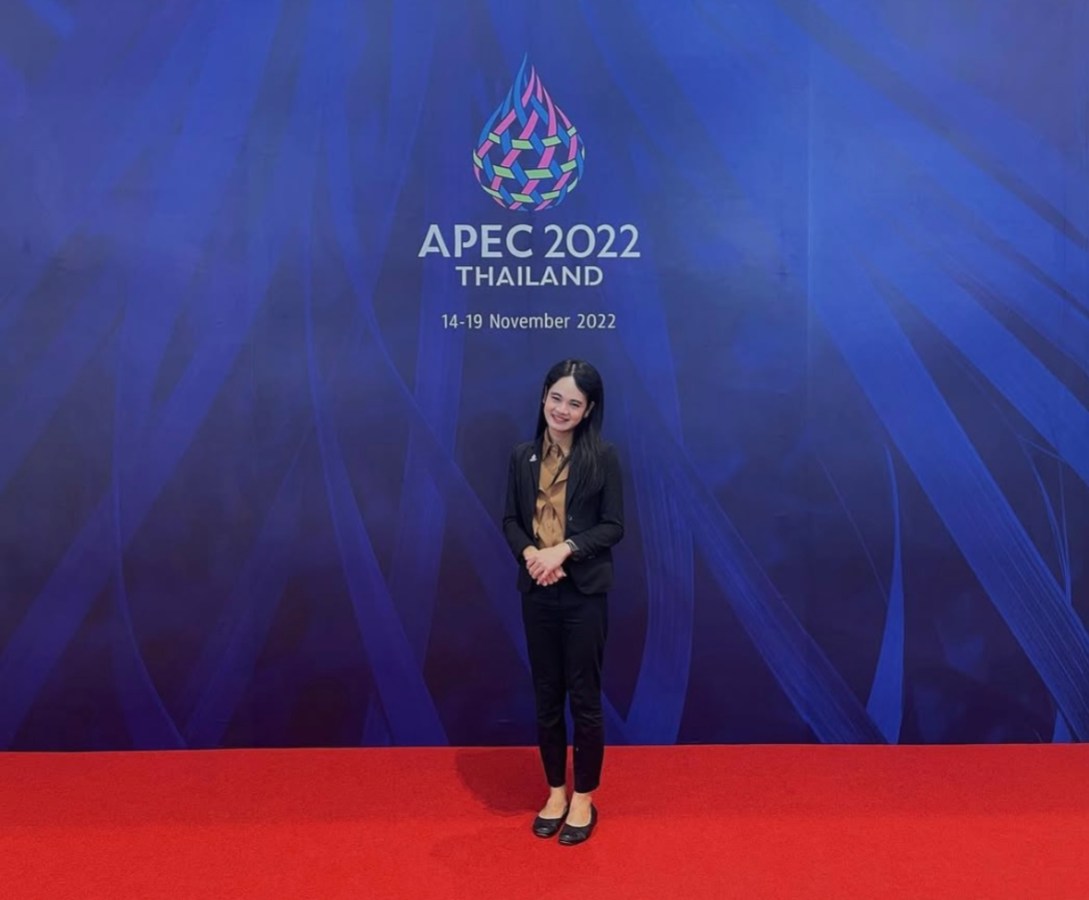When 23-year-old Dew Siratan Sittitanyawat reached the third round of her application to become a diplomat in Thailand, she was faced with a decision: attend her in-person interview as herself or cut her hair last minute.
“This interview is almost a once-in-a-lifetime opportunity. I was debating with myself whether I should just forsake my own identity a little bit when going into the interview round by cutting my hair, pretending to be a boy for just a few days,” Sittitanyawat tells me. “It was a major decision for me, because this would be the first time the executives would see me for who I am, the real me.”
In Thailand, the application process to become a government official is rigorous. It consists of multiple exams, essays, and finally, an intensive interview. Sittitanyawat had dreamed of earning the prestigious position of diplomat, and she had already made it through the competitive first two rounds. The first round has 5,000 applicants, and by the final round, 25 candidates remain.
“Even the night before the interview, I still think that I could run to a salon to get my haircut in time,” she adds. “But it was at that moment I realized…the other candidates were just preparing for useful things, like how they would do their speech, how they would present their policy, and their visions. And it’s just so sad to me that I have to be thinking about whether to cut my hair. So that is when I just decided, okay, if they’re not gonna accept me for who I am, then maybe I don’t wanna work with them, too. And I decided to go in as is, everything, long hair, makeup, and just be myself.”
In her interview, she was asked if she thinks Thailand is ready for a transgender diplomat. “I said yes, absolutely,” Sittitanyawat recounts.
Years later, Sittitanyawat is the first openly transgender diplomat in Thailand. She is a third secretary in the Thailand Ministry of Foreign Affairs’ Office of Policy and Planning.

Dew Siratan Sittitanyawat on her first day of work as a diplomat
In Thailand, queer people have media visibility but not accompanying legal protection. “Our anti-discrimination laws are still not that comprehensive and could very much be upgraded….This is something we need to work on,” Sittitanyawat says. “Social acceptance can be conditional. People may love the idea of queerness, but not always support queerness in… leadership or in their family.”
Thailand’s current laws only account for men and women, and do not recognize nonbinary or gender nonconforming people. Technically, for roles like government jobs, employees are still required to dress according to their gender assigned at birth. Even if it is not always enforced, there are no legal protections for LGBTQ+ people in this capacity.
By holding a prestigious government job, Sittitanyawat hopes to shape LGBTQ+ friendly policies as well as show transgender women can succeed in leadership positions.

Sittitanyawat at her desk at the Ministry of Foreign Affairs
“Most of the time, being trans or LGBTQ in Thailand is always associated with being funny,” she says. “It has become a belief that the people in the LGBTQ community could not do anything other than an entertainment job… You won’t see many trans women in another industry.” Sittitanyawat hopes to demonstrate that LGBTQ people can succeed as lawyers, doctors, or diplomats, just as much as they can succeed as performers.
Sittitanyawat’s identity plays a key role in how she sees the world and how she shapes her policy work. “Being a trans woman gave me a deep sense of empathy and awareness of how identity can impact access, opportunity, and representation, especially in a system that hasn’t made space for people like us,” she says. “And that is why I approached my work, both in life and as a diplomat, not just only through policy and protocol, but also through a lens of visibility. Just simply being me matters. Being visibly trans in a conservative space like the government can be isolating sometimes, but it also pushed me to live with more compassion.”
“My identity doesn’t limit me,” she adds. “It grounds me in a purpose bigger than myself. My presence alone is already almost like a political act.”
Sittitanyawat’s success in her role is seen as a milestone and a sign of positive change. After Sittitanyawat joined the Thai government, she inspired many of her coworkers to come out after years of being closeted.

Sittitanyawat at the 2022 Asia-Pacific Economic Cooperation in Thailand
Sittitanyawat has worked on many projects through her role as a diplomat. One highlight was the APEC, or Asia-Pacific Economic Cooperation. In 2022, Thailand hosted the APEC, which brought leaders from 21 countries Asia-Pacific region together to discuss trade, the economy, and working together. Sittitanyawat was the Media Liaison Officer for Canada, so she coordinated all of the Canadian press during the event.
“The thing that I have the most impact on is essentially shaping the perception of trans women, of what we can and cannot do,” she says. “I’ve gotten messages saying, ‘thank you for being a trailblazer. Now I know I can aspire to be like you, too. Now I know that my opportunities are not limited to just being an entertainer or closeted.”
Just a few months ago, Thailand legalized same sex marriage. Sittitanyawat sees this as a very positive sign for Thailand. After years of campaigning and many revisions of the bill, LGBTQ+ people can now marry with the same rights as cisgender and straight couples. Thailand is the first country in Southeast Asia to pass a bill like this. Sittitanyawat hopes that Thailand will become increasingly recognized as a queer friendly country.
The current political climate around LGBTQ+ rights in Thailand and internationally is a “mix of hope and heartbreak,” for Sittitanyawat. In Thailand, there is “positive momentum,” but “progress is still slow.”
“Some countries are passing groundbreaking policies, while others are rolling back protections.” The United States used to be seen by many globally as the standard for LGBTQ+ rights and protections, Sittitanyawat says, but now “people seem to be clicking the undo button.” Sittitanyawat feels the importance of advocating for inclusive policy at home and abroad even more now.
“I believe diplomacy has a role to play in pushing global norms forward, and I hope to be a part of a wave that shows that queer inclusion isn’t just a Western import of political trends,” Sittitanyawat says. “It should be a universal human right.”

Sittitanyawat is hopeful about the future. To LGBTQ+ youth, Sittitanyawat says: “You are not alone. It might feel like the world wasn’t built for you, and in many ways, it really wasn’t. Like, girl, who are we kidding? Right? But your identity is not something that you have to hide or minimize. It’s actually a core part of your strength.”
“My advice would be, find your support system and don’t rush your journey,” she adds. “Coming out, growing into yourself, finding your voice, all these things take time, and it can be at your own pace. Don’t let anyone make you feel like you have to choose between being successful or being authentic. You can be both. And I like to think that I’m the proof of that. Every time you speak up, every time you show up, you are already creating a space, not just for yourself, but for the next person who needs to know what’s possible.”
Currently, Sittitanyawat is pursuing a master’s degree in strategic communication at Columbia University. When Sittitanyawat returns to Thailand, she hopes to continue growing as a diplomat and as an advocate.
“I see my career as a bridge between communities, between tradition and progress, between policy and the people,” she says. “We need a more diverse voice at the table, not just as tokens, but as leaders as well. So my goal is to help create a world where queer trans Southeast Asian women in government aren’t seen as remarkable. It will be something really, really normal. That’s the future I want to build.”



Hell yeah!
Good for her!
Oh my gosh I love everything about this!!!! Thanks for this reporting!